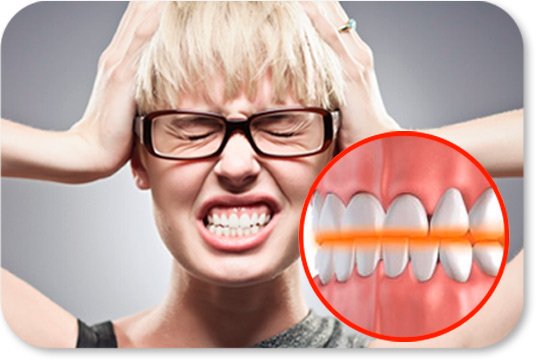Table of Contents
Up to 31% of adults experience a common condition called bruxism, which refers to unconscious teeth grinding. This article will discuss the causes, symptoms, and effects of this condition, and also explore how Intra Oral Massage can serve as an effective complementary treatment to alleviate it.
What is Unconscious Teeth Grinding (Bruxism)?
Bruxism, also known as unconscious teeth grinding, refers to the involuntary clenching or grinding of teeth during sleep. While occasional teeth grinding may not be a cause for concern, persistent bruxism can have negative impacts on both oral health and overall well-being. It is crucial to have a thorough understanding of the causes and symptoms of bruxism to effectively manage and address this condition.
Causes of Bruxism
- Stress and Anxiety: One of the primary causes of bruxism is stress and anxiety. Many individuals unknowingly clench or grind their teeth as a response to emotional tension, which can intensify during the night.
- Misaligned Teeth: Malocclusion, or misaligned teeth, can contribute to bruxism. When the upper and lower teeth don’t fit together properly, the body may attempt to find a more comfortable resting position through grinding or clenching.
- Lifestyle Factors: Alcohol consumption, smoking, and excessive caffeine intake can increase the risk of bruxism
- Medications: Certain medications, such as antidepressants, can be associated with teeth grinding as a side effect.

Symptoms of Unconscious Teeth Grinding
Identifying the symptoms of bruxism is crucial for timely intervention.
- Tooth Sensitivity: Prolonged grinding can wear down tooth enamel, leading to increased sensitivity to hot or cold temperatures.
- Jaw Pain and Headaches: Persistent clenching or grinding can strain the jaw muscles and lead to chronic headaches.
- Worn Teeth: Dentists can detect bruxism by examining the wear patterns on your teeth.
- Earaches: The pain caused by bruxism can sometimes radiate to the ears, leading to discomfort and earaches.
- Disrupted Sleep: Bruxism can disturb your sleep, leading to frequent awakenings throughout the night
Managing Bruxism with Intra Oral Massage
Intra Oral Massage is an emerging therapy that has shown promise in alleviating the symptoms of bruxism. This holistic approach involves massaging the muscles inside the cheek, known as the buccal area, to reduce tension and promote relaxation. While Buccal Massage addresses the muscular aspects of bruxism, complementing this treatment with a night guard can offer added protection against teeth grinding. Here’s how Intra Oral Massage can help with unconscious teeth grinding:
Muscle Relaxation
Intra Oral Massage helps release tension in the jaw muscles, which is beneficial for individuals with bruxism. Relaxed muscles are less likely to clench or grind during sleep.
Stress Reduction
Since stress is a significant trigger for bruxism, Intra Oral Massage can also have a calming effect on the mind, reducing overall stress levels.
Improved Blood Circulation
Massaging the buccal area can improve blood circulation to the facial muscles, which can aid in muscle recovery and reduce the likelihood of muscle fatigue during sleep.
Enhanced Jaw Mobility
Regular Intra Oral Massage can improve the range of motion in the jaw, making it easier for individuals with bruxism to find a comfortable resting position for their teeth.
Final Thoughts
Unconscious teeth grinding can have a significant impact on your oral health and overall quality of life. Understanding the causes and symptoms of bruxism is the first step toward effective management. While Intra oral (Buccal) Massage is not a standalone treatment for bruxism, it can be a valuable complementary therapy to reduce muscle tension and promote relaxation. If you suspect you have bruxism, it’s essential to consult with a dentist or healthcare professional for a comprehensive evaluation and a tailored treatment plan that may include Intra Oral Massage as part of a holistic approach to addressing this condition.
For professional assistance with Buccal Massage and to explore how it can benefit you, feel free to reach out to us. If you’re keen to learn more or just eager to get started, why not book your first session with Marina?